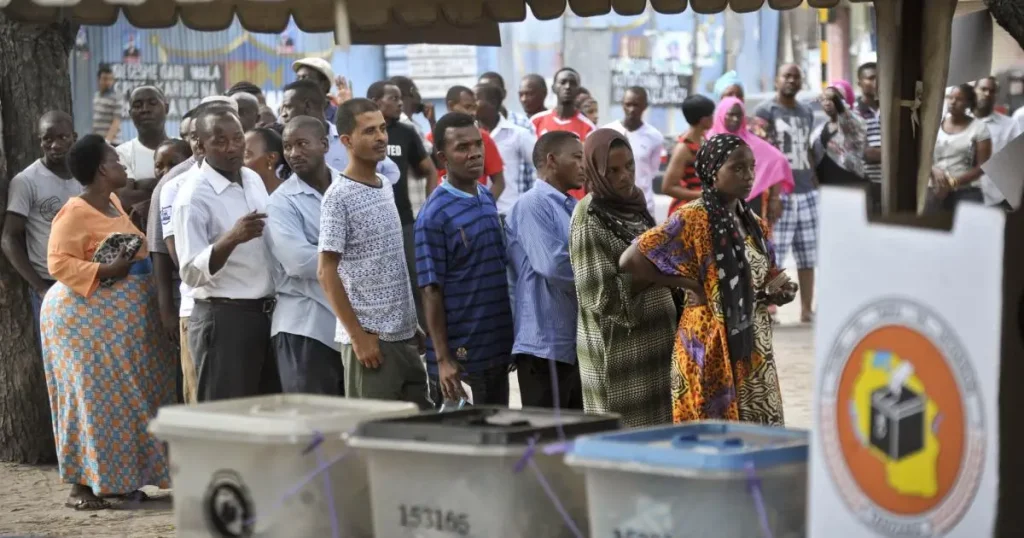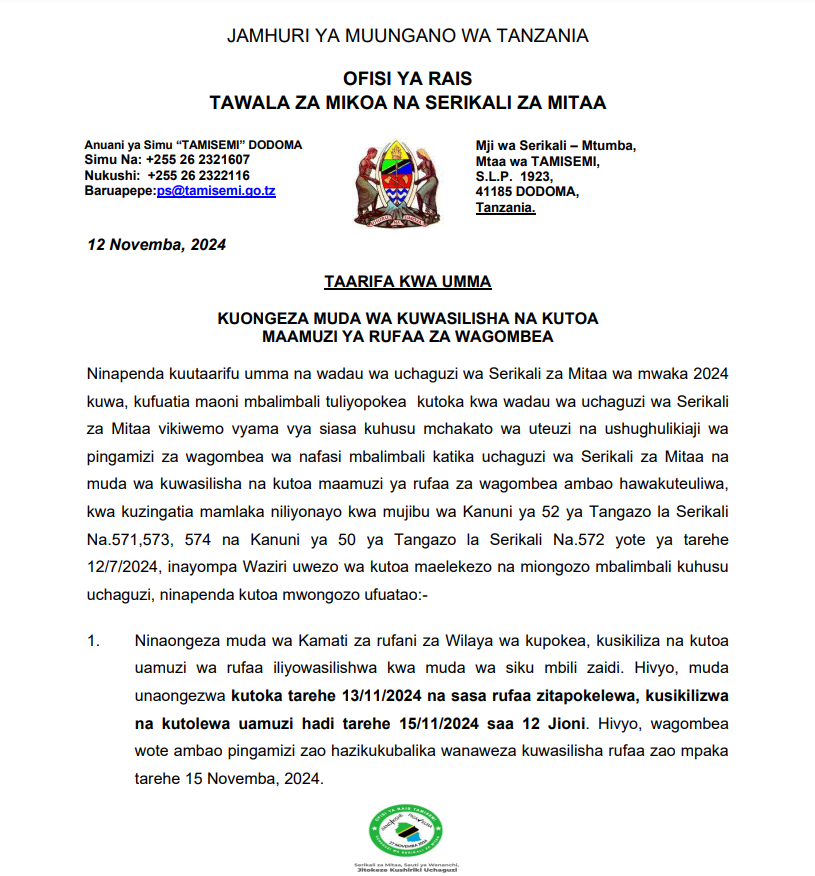In a multiparty democracy, any country that values citizens’ freedoms and rights is obliged to ensure elections are conducted transparently and fairly, giving every candidate—regardless of their political affiliation—an equal opportunity to participate.
However, in a statement by the President’s Office—Regional Administration and Local Government (TAMISEMI) on 12 November 2024 regarding the extension of appeal periods for candidates in local government elections, we witness a conflicting picture regarding good governance and the maturity of our democracy.
Are these directives a sign of our democracy’s growth or an indication of ongoing restrictions on political freedom? As a nation, where are we heading on this journey towards building a genuine democracy? This is a significant question that demands a thorough discussion in the national interest.
The Importance of Transparency and Fairness in Elections
True democracy aims to empower citizens with the freedom to choose their leaders openly. The extension of the appeal period, as announced, suggests TAMISEMI’s intention to create a supposedly fair environment.
However, we are compelled to reflect critically: how often in our election history have such decisions merely served to underline the presence of unfair practices?
In instances where appeals and candidate decisions have been restricted in various ways, the right to participate becomes subject to numerous challenges.
By extending the appeal period, TAMISEMI provides candidates with a second chance to reclaim their rights. Yet, we must ask: Is this a positive strategy for democratic development, or is it an attempt to mask existing gaps in ensuring fair participation?
Challenges in Implementing Legal Requirements
Laws must be enforced fairly and impartially in any credible and respected election. TAMISEMI’s statement outlined directives for election supervisors to reinstate assistant supervisors to ensure all candidates can access the appeal process. This is commendable if carried out transparently. However, frequent complaints about bias and political favouritism have diminished public trust in government institutions.
While extending the appeal period could be a move towards resolution, will this step benefit all candidates equally, or is it only beneficial to those aligned with certain political views?
This leads us to a tougher question: is our democracy truly advancing by the rule of law, or is it deteriorating due to waves of political favouritism?
The Role of the Government in Fostering Democratic Maturity
In a setting where multiparty democracy has begun to take root in Tanzania’s political system, the government is responsible for creating a free and fair environment.
The Minister of TAMISEMI has declared that his office will continue to uphold the principles of good governance. This sentiment should be supported by all who value national progress.
However, while some candidates claim to have been denied participation, the extension of the appeal period raises several questions. Are we indeed building good governance, or are we allowing certain individuals to operate under conditions that cast doubt on fairness?
The political actions taken in this election period could significantly impact our democracy. We need transparency in enforcing legal requirements and fairness for all candidates so that our nation progresses, not regresses.
Impact on Political Parties and the Future of Democracy
The political parties participating in this election form the foundation of building a nation with diverse voices and visions. By extending the appeal period, TAMISEMI has encouraged candidates and political parties to take advantage of this opportunity.
However, these directives will have little meaning without close oversight of the decisions made by the appeals committees.
Opposition parties, in particular, need to witness justice implemented according to established laws and procedures. As a nation, we must re-evaluate our election implementation practices and provide candidates with assurances that the government upholds the law impartially. Failing to do so will continue to stifle our democracy.
Conclusion
As our nation advances in strengthening its multiparty system, it is crucial to ensure that elections are free, fair, and transparent. The guidance from TAMISEMI may aim to rectify any flaws by extending the appeal period.
Still, it is essential to ask ourselves: do these actions reflect our democracy’s maturity, or do they signal an erosion of the multiparty system?
Our country must embrace a governance system that prioritises political freedom and fairness for all, regardless of political affiliation. Fair elections are a means to build a society rooted in genuine democracy and sustainable development.
At this critical stage in the local government elections, our call is for TAMISEMI to collaborate with all stakeholders to ensure that every candidate can be heard and chosen by the citizens. This is the foundation of democracy; this is the foundation of a just Tanzania for all.


